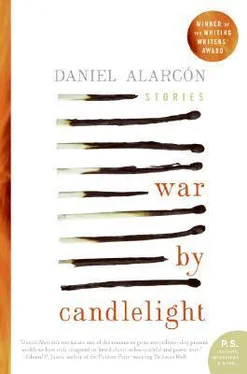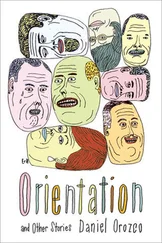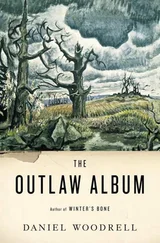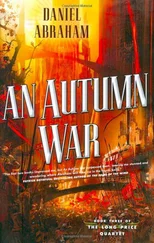That first year in the city, he sent letters home nearly every week. He had refused to live with his brother or sister, wanting to strike out on his own. Of course they sent him money from Arequipa, which he acknowledged gratefully in his letters. His correspondence was full of a young man’s awe at living alone, with enthusiastic descriptions of his boardinghouse in Barrios Altos, of the crowded neighborhood with its teeming street life, panegyrics to Lima and the opportunities it seemed to promise. These were letters that Fernando would have been embarrassed to read later, but his mother had held them nearly sacred at the time. Of course both had forgotten them, and perhaps this was just as well.
She might have remembered his childhood friends, his crew of mischievous, quick-witted boys, nearly all of whom made their way to Lima eventually. If Fernando had ever brought José Carlos around to see her, it might have jogged something in her memory — an image, a flicker. The two boys had been inseparable. She’d found them once, not even eight years old, discussing with great seriousness the creation of a superhero who would be a combination of the two of them, an amalgam of their unique virtues. She had lingered in the doorway, listening, laughing to herself. Having humbly appraised their various qualities, the two boys had left the most contentious topic for last: a name for their conqueror.
All this was forgotten, along with a hundred other details, moments, words: she had never thought much of his politics, had avoided the room whenever the heated talk began between father and son. The boy had opinions on everything. She hadn’t wanted to notice when his letters took on a different tenor: his new obsession was Lima and its poverty. One long note was spent describing the trials of a destitute newspaper vendor, a wizened man who claimed to carry his meager life savings in a pouch around his neck. He’d lost his family in a landslide, Fernando wrote, but the man held on. He walked to Lima. No one had come to help them. Fernando found it horrifying, or at least his letters said so.
His mother found it appalling as well. “There are poor right here!” she exclaimed as her husband read the letter aloud. She felt pity for Fernando then: he was such a sensitive boy, to let other people’s problems upset him so.
Now she was dying. Inés called one Sunday to tell him this fact. She was older than Fernando by eight years, and liked to make that clear. He had been promising to come visit for weeks, had meant to. “Honestly,” he said.
“You don’t remember us. You don’t come around, Nano. Meanwhile your own mother—”
Fernando cut her off. It was early morning, a Sunday. In better times, he might have come by that afternoon, taken Inés’s sons to play soccer in the park, filled up the station wagon with Maruja’s boys too and made a day of it. Through his bedroom window, he could see the sun peeking through the fog. Maruja sat at the foot of the bed, her hair wet, pulling on a pair of jeans and a sweater. It was the last time he spoke with his sister for over a year. He would remember it clearly. Inés was excitable, given to waves of sentimentality that could come at any time: a mention of Arequipa, a song, an old picture tugging at her heart from behind a dirty glass frame. But her mother — nothing and no one was more sacred or more special than her mother, who had raised her and guided her. “Fernando, we owe her everything.”
“Inés, Inésita. Cálmate …”
His head hurt each morning in a new way. Sometimes the dizziness overcame the pounding, sometimes his body shook with such force that he wondered if others could see he was falling apart. But to Inés, he was whole, composed. He spoke quietly but did not waver.
“Our mother has everything. She has a home to sleep in. She has food to eat. She has a family to care for her. What about the other mothers? The ones who have nothing? Who will visit them?”
“Their children.”
“Their children are busy,” he said. “They’re cleaning your house.”
“Go to hell, Nano. I don’t need your lectures.”
“I can’t come today.”
“You’re cruel.” She hung up the phone softly.
V. Father, 1966
Fernando placed first in the national exam. He was admitted to the university. It came so suddenly, such good news so unexpectedly, that his parents drove to Lima to congratulate him. They met at Elías’s house, the family gathering around to toast Fernando, their youngest. His unruly black hair had been shaved down to the scalp. It made him look even younger than he was, seventeen, but it was tradition. Around Lima, on the buses and in the streets, you could spot the bald young men who had just been accepted. At the party, everyone made fun of his bald head. The photos show Fernando smiling happily, his arms slung over his brothers’ shoulders, with Mateo’s large hands curling over his younger brother’s scalp and onto his forehead. Everyone is laughing in the photograph, including Enrique behind tinted frames, and Elías, the oldest, whose smile was a replica of his father’s.
Fernando made a toast, to the coming challenges, to his chosen profession, engineering, and to all the people without homes whom he planned to build houses for. There were chuckles all around, but not from Fernando. He meant every word.
And there was no laughter from his father, Don José, who perhaps knew his son best. Fernando, who argued but always listened. Fernando, who threatened his family with his failure just to remind them he was independent. Fernando, who at age four, undersized and quiet, had refused to eat another bite — not for his mother, not for his sister, and not for his brother. “Who will you eat for, Nano?”
“For Guminga,” he said emphatically. “For Gu-min-ga.”
Dominga, the maid. Even then he was with the people, Don José thought. Dominga was a child herself when she first came to the house, barely eighteen, taking care of the home, cooking, cleaning, and looking after the infant Fernando. She was the first maid the family had been able to afford. Now Dominga lived in a small room, next to the kitchen. She had sewn a curtain out of scraps of fabric and hung it from a rod above the door. If a candle came down the hallway in the middle of the night, she would sit up in bed, peering out into the kitchen to see if she was needed. She was from Puno, from the cold altiplano, where she went every August on her two-week vacation. She wore her hair in two even braids that stretched to the center of her back. Not beautiful, not even pretty, she had an oval face and inky black eyes. Still, the simplicity of her desires gave her an air of satisfaction that others spend their lives chasing. A bed, a roof, a little money to send home; that was all, and when she held Fernando, she was somewhere altogether different, and there was nothing ordinary about her life because she was wanted. Don José had seen her, and it amazed him: the child could do that to her, with his searching look, with his conviction that she stand by him, and be near him, before he drifted into sleep. Even now she had sent a small tin of jam wrapped in newspaper, a present, she said, for the young engineer. She still remembered him. “Little Nano,” she had said to Don José. “Give him a kiss for me.”
Don José, watching his son toast the houses he would build for Peru’s homeless, watching his son tremble with emotion at the warmth of the family surrounding him, recognized that Fernando’s heart was like his own: nostalgic but combative, caring but suspicious, able to bundle great ideas into intractable knots of personal anxiety. It is the way men begin to carry the world with them, the way they become responsible for it, not through their minds, but through their hearts. And though they shared much, the differences between Don José and his son were also striking, and also a question of heart. Don José saw that as well and did not, as others did, attribute those differences to something as simple as youth.
Читать дальше












